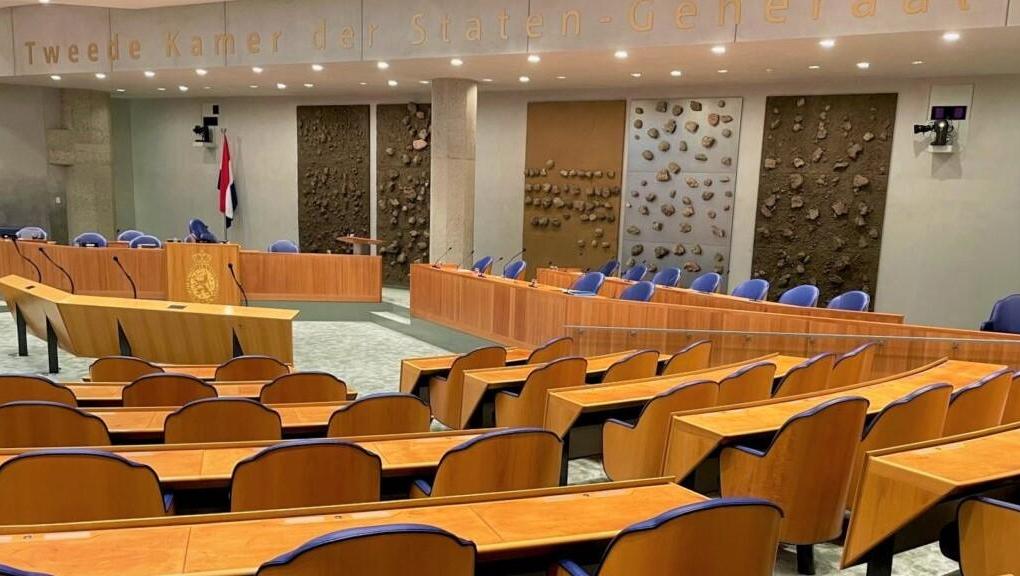Letter IP2I to Committee of Economic Affairs and Climate Policy

Dear Member of Parliament,
On 1 November, the Parliamentary Committee on Economic Affairs and Climate Policy will discuss the topic of infringement prohibitions and proportionality in Dutch patent law, which is raised in the letter of 20 June from the Minister of Economic Affairs in response to a commitment she gave to your House in the debate on Innovation of May 25, 2022. IP2Innovate, a coalition of technology-intensive companies and industry associations, read the Minister’s letter to your Committee with interest and is pleased to provide you with our views on how to improve the situation for the manufacturing industry based in the Netherlands. In particular, we believe that it is vitally important that a requirement that remedies in patent cases be proportionate, along with the key criteria for assessing proportionality, be added to the Dutch Patent Act.
We find it positive that the Minister is mindful of the unreasonable consequences of automatically imposing an infringement ban and believes that the remedy for the infringement of a patent should be proportionate to the infringement. She thus endorses the importance of a proportionality assessment in patent cases. The Minister also indicates in her letter that Dutch judges are already able to undertake a proportionality assessment in considering which remedy to grant and do so in practice.
We are pleased that the Minister endorses the importance of undertaking a proportionality assessment in patent cases but still have major concerns on two points. First, we are concerned about the narrow definition of proportionality as highlighted in the letter, which we believe is inconsistent with EU law and not sufficiently supportive of industry in the Netherlands. Second, in contrast to the letter, we are concerned that proportionality is in fact not being applied by Dutch courts in proceedings on the merits in patent cases. These two concerns cause us to disagree with the letter’s recommendation that an amendment to Dutch patent law addressing proportionality is not needed.
Below we first outline the current situation with regards to the application of proportionality in the Netherlands and the impact of this situation on the manufacturing industry in the Netherlands. Then we outline our concerns about how proportionality is being applied in the Netherlands, which provides an impetus for a solution through legislation. We conclude with a brief introduction of IP2I.
Outline and impact of the current situation
EU law, in particular the Intellectual Property Rights Enforcement Directive (IPRED), requires that remedies for patent infringement be proportionate rather than automatically granting an injunction (Article 3(2) of IPRED). This provision has not been transposed into Dutch law. Despite proportionality being a requirement of EU law, when judges find patent infringement, a ban on the entire product containing the patented component always follows automatically. This happens without a proportionality assessment being undertaken even in those cases when the patent being infringed is only a small part of a complex product containing hundreds of thousands of patented parts (a car, for example). Because patent holders know that injunctions will be granted automatically in the event of a finding of infringement, they use the threat of an automatic injunction to extract excessively high settlement fees from manufacturers based not on the value of the infringed patent but on the threat of having to withdraw an entire product from the market, as is typically required by an injunction. This situation is damaging for companies developing new products or services in the Netherlands.
This situation is not only damaging for Dutch industry, it also sets the Netherlands at a competitive disadvantage compared to other countries where proportionality is applied. Differences in the application of proportionality between countries leads to a competitive disadvantage or advantage, and may lead companies to move their production to a country with a more balanced regime. The practice in the Netherlands of granting injunctions automatically following an infringement makes the Netherlands less attractive to the manufacturing industry compared to other parts of the world where no such automatic ban exists and where remedies can instead be appropriately tailored to fit the situation.
Proportionality requires a balancing of different interests
The Minister, in our view, suggests too narrow a view of how to apply proportionality. She views the proportionality assessment as a weighing of fundamental rights, stating in her letter of 20 June that it is up to the national court "not only to interpret national law in conformity with the directive but also to ensure that a proper balance between different fundamental rights is ensured and that account is taken of, inter alia, the principle of proportionality" (p.3.). We argue that the principle of proportionality enshrined in Article 3(2) of the EU IPR Enforcement Directive should be interpreted as encompassing more than (just) a balancing of fundamental rights.
The distinction is important because situations exist in which no fundamental rights may be violated but in which an automatic, permanent, and disproportionate ban is granted fall entirely outside the scope of this narrow definition of proportionality. We believe that proportionality should therefore be more widely defined than just a weighing of fundamental rights to ensure a balancing of different interests.
In our view, proportionality requires a flexible, adaptable approach given the complexity of today’s technologies, and should include the assessment of factors that are well-established in a proportionality context in Europe. These factors include:
- the impact of the injunction on the defendant compared to the harm to the patent owner from denial of the injunction;
- the impact of the injunction on third parties such as suppliers and distributors; and
- the impact of the injunction on customers and consumers.
Evaluation of each factor will depend on the specific facts of a case. Facts relevant to the first factor include:
- whether the patent owner relies on the patent to protect a market position or distinguish its products in the marketplace, or whether the patent owner's primary business goal is to receive disproportionate monetary compensation for licensing to others use of the patent; and
- whether an injunction creates leverage for the patent owner disproportionate to the value of the patented technology, such as when the infringement concerns a minor feature of a complex product.
Whilst an injunction is likely to be the most appropriate remedy in many cases, these factors allow courts to recognise those cases in which an award of damages and an on-going royalty, or a delayed injunction that allows time for designing around the patent and the sale of products in the distribution chain, will be more equitable to the parties, more beneficial to consumers, and more proportionate to the value of the patented technology.
The application of proportionality by Dutch courts
Our concerns about the limited interpretation of proportionality as a weighing only of fundamental rights is confirmed by the case between ASML and Nikon, also cited by the Minister. In that case, in determining what remedy to grant, the court considered that no fundamental rights were violated but did not undertake a balancing of wider interests.
In all the other proceedings on the merits that Darts-ip analysed for the period 2018 to 2020, Dutch courts also did not undertake a balancing of interests as proportionality under the IPRED requires.
Although the Minister’s letter cited “preliminary relief” proceedings such as the case between Ericsson and Apple as an indication that the principle of proportionality is understood more broadly than just a consideration of fundamental rights, these decisions relate to preliminary injunctions, which are requested before the court has made a determination of infringement. Courts have not treated the analysis of preliminary injunctions as relevant to the proportionality assessment for permanent injunctions, and so these cases do not give a fair assessment of how Dutch courts evaluate proportionality of remedies after a finding of infringement.
Thus, we respectfully disagree with the position of the Minister’s letter arguing that Dutch courts are properly applying the proportionality requirement after a finding of patent infringement and that legislation is not needed.
Proportionality should be enshrined in the Dutch Patent Act
Patents and patent protection are important for innovation, industry and economic growth. To ensure that remedies are proportionate as is required by EU law, judges deciding what remedy to use to protect a patent and promote innovation must consider the legitimate interests and rights of patent holders, the interests of manufacturers in being able to bring products to market, and the broader interest in encouraging investment in new technologies, as we explained in detail in the section above.
As the proportionality test of the Intellectual Property Rights Enforcement Directive has not been explicitly transposed into Dutch law, and given our concerns about the narrow definition of proportionality by Dutch courts in proceedings on the merits, and the fact that in the other cases analysed by Darts-ip for the period 2018 to 2020 proportionality was not applied, IP2I is of the view that legislation is needed to make sure that judges apply the principle of proportionality more broadly and thereby take all interests into account. This will help clarify the principle of proportionality and, in particular, its relationship to Article 3 of the Enforcement Directive (IPRED) and the case law of the Court of Justice and the Dutch Supreme Court.
Germany has taken a similar approach by amending its Patent Law in June 2021 to require judges to undertake a proportionality assessment. We advocate for similar reform in the Netherlands. Although the Minister argues that the amendment in Germany has had limited practical impact as the amendment in Germany is just over a year old, it has not yet been applied in many cases for which a decision is publicly available, and so it is too early to assess its impact. It is important to note that a significant motivation for enacting the German legislation was evidence that German judges were not applying the proportionality requirement, as is also the case for Dutch courts.
The member companies of IP2Innovate would be pleased to discuss this important topic in more detail with you.
Sincerely,
Patrick OLIVER
Executive Director IP2Innovate
Other blogs

IP2I calls on European Commission to protect Europe’s patent system from abuse

SMEs – the unseen victims of patent trolling

